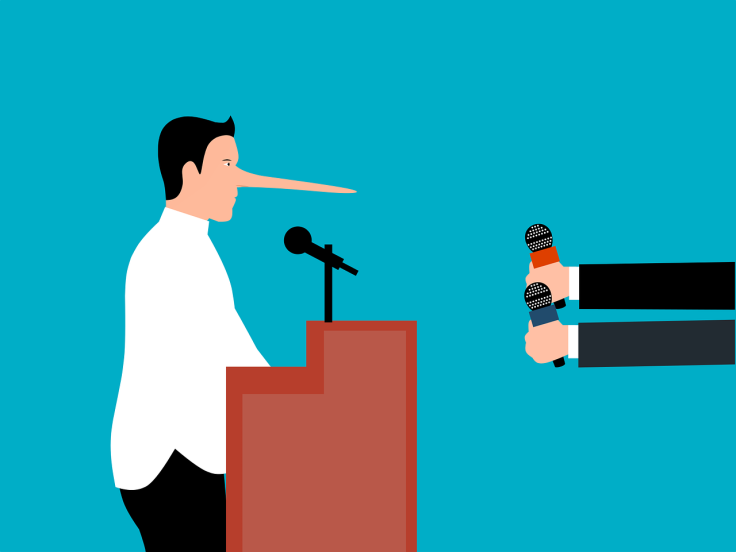How To Expose Liars: Researchers Find New Method Of Lie Detection Using Distraction
KEY POINTS
- There's evidence that lying is more "cognitively demanding" than telling the truth
- Researchers conducted an experiment on the effect of distraction on truth and lie telling
- Results show that a secondary task could help facilitate lie detection
How do you identify if someone is lying while being interviewed? Distracting them with another task could help expose the liars, a new study has found.
Although lying seems easy for some people, there's evidence that it's actually more "cognitively demanding" compared to simply telling the truth, noted the researchers of a study, published in the International Journal of Psychology and Behaviour Analysis.
There are several reasons for this, according to the researchers. For one, people who are lying have to fabricate details to sound believable and should remain consistent in case they are asked the same question again. They also have to constantly remind themselves to continue lying and suppress the truth first before the lie comes out when they are asked a question.
"Investigators can take advantage of the additional cognitive load imposed on lie tellers by imposing additional cognitive load, which should be particularly debilitating for lie tellers," the researchers wrote. "One possible way to impose additional cognitive load in interviews is by asking interviewees to carry out a secondary task at the same time as recalling their stories."
For their work, the researchers carried out an experiment to look at the effect of a secondary task on truth tellers and lie tellers. They first asked 164 participants about their support or opposition to various societal topics and then randomly placed them in either a truth group or lie group, the University of Portsmouth noted in a news release.
The truth group simply had to state their real opinions during an interview on the topics they felt most strongly about, while those in the lie group were asked to pretend that their opinions were the opposite. Participants were told that it was important to be believable.
"If the interviewer believed them, they would be entered in a prize draw worth £50, £100 and £150 ($61-$183)," the researchers wrote. "If the interviewer did not believe them, they would not be entered in the prize draw. In reality, all participants were entered in the draw."
Some of the participants received a secondary task, while others didn't. Those who were given a secondary task were instructed to remember a seven-digit car registration number "in addition to story-telling." Some of them were informed that they would have to write out their opinions after the interview if they couldn't remember the number, although none of the participants were really asked to do that.
Indeed, the results showed that the lie tellers' stories were less believable compared to the truth tellers' versions, especially when they had the secondary task.
"In the last 15 years, we have shown that lies can be detected by outsmarting lie tellers. We demonstrated that this can be done by forcing lie tellers to divide their attention between formulating a statement and a secondary task," said study author Aldert Vrij, who also designed the experiment. "When the opportunity to think becomes less, truths often sound more plausible than lies."
That said, the researchers noted that this method should be used "carefully" as giving the secondary task only appears to be effective if the lie tellers don't neglect it. For instance, the researchers got the worst results in the group with the secondary task but without incentives.
"We argued that lie tellers may be inclined to focus less on the secondary task than truth tellers in this 'no incentive' condition, because lie tellers would prefer to focus on the story-telling part," they wrote.
It would be useful to either give them a task that "cannot be neglected" or by telling the interviewee that the task is important.
"Secondary tasks that do not fulfill these criteria are unlikely to facilitate lie detection," the researchers added.

© Copyright IBTimes 2024. All rights reserved.






















